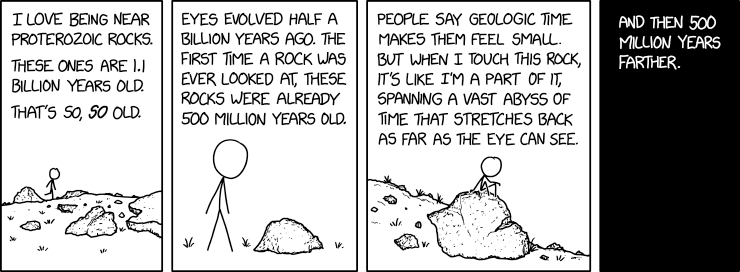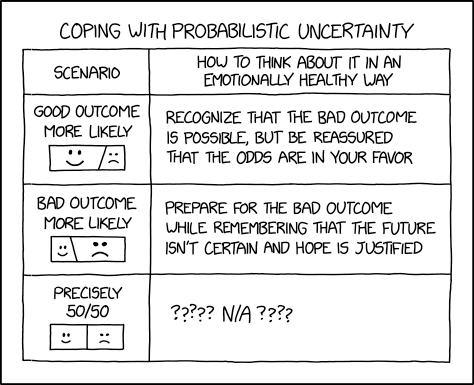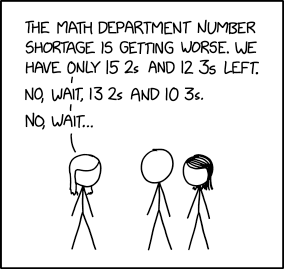********** HEALTH **********
return to top
The creatine conundrum: can it really help your muscles and your brain?
Sun, 10 Nov 2024 14:00:21 GMT
Long favoured by bodybuilders and other athletes, this supplement is breaking out into the mainstream, as study after study suggests a host of benefits for our minds as well as our bodies. Are there any caveats?
Until relatively recently, if you were mixing a scoop of powdered creatine into a glass of water each day, it probably meant you were a bodybuilder or training for an athletic event. Although creatine is a compound that occurs naturally in the body, its role in producing quick bursts of energy meant that, if you took extra, it was assumed to be in order to (legally) enhance your performance – to help you squat a fractionally heavier weight or run a bit faster.
But evidence has been mounting that creatine may play an important role in cognitive function and improving brain health – and could be more beneficial to women than it is to gym bros. So, should we all take it – or at least try to get more of it from food?
Continue reading...As the nights draw in and temperatures drop, it’s tempting to abandon outdoor exercise. But as experts reveal, there are ways to beat the freeze and get into even better shape
“When it’s cold outside I find a quick ice bath sorts me out. It’s so cold that the outside conditions feel ‘warm’. It resets my resilience bar.” The words of extreme endurance athlete Sean Conway, who has run in temperatures as low as -10C. But what about more palatable ways to cope with the cold? And are there actually benefits of exercising in the cold?
Continue reading...Missouri was the first state to officially outlaw abortion after the Dobbs decision. Voters said no more.
The post Missouri Voters Overturn Abortion Ban in Decisive Win for Reproductive Rights appeared first on The Intercept.
Way back in 2018, people noticed that you could find secret military bases using data published by the Strava fitness app. Soldiers and other military personal were using them to track their runs, and you could look at the public data and find places where there should be no people running.
Six years later, the problem remains. Le Monde has reported that the same Strava data can be used to track the movements of world leaders. They don’t wear the tracking device, but many of their bodyguards do.




It’s time to celebrate whatever you fancy with a lovely slice of cake
An urgent need for cake. An old-fashioned one, studded with dried fruit, or perhaps a slice of something more frivolous, with a citrus filling and iced top and sides. A birthday-style cake looking for a birthday.
Rarely does an afternoon go by without a piece of something sweet on a plate eaten with a cup of tea. This week, a wedge of simple fruit cake. Not as extravagant as the recipe for Christmas cake, this one is more cake than fruit, but has the same deep butterscotch notes from dark muscovado sugar and a comforting whiff of nostalgia. It is the sort of cake no one bakes any more, and it is good to see it again.
Continue reading...UK Hospitality says members would have to hike prices 8% to cover the extra cost of hiring staff under new employer NIC rates
Nothing tarnishes an evening out quite like a row over the size of the bill.
But leading figures in the hospitality sector fear Labour’s first budget in 14 years has put them on a collision course with their guests over the fair price of a meal.
Continue reading...Food, fertiliser, fuel … seaweed has been a life force for centuries. On a coastal foraging trip in Pembrokeshire, we discover it’s now behind a new green initiative, too
I am lying in a hot bath filled with seaweed. After a week learning about the stuff, collecting it, drying it, eating it, feeling it slippery beneath my feet, this is the first time I’ve bathed in seaweed and, yes, in the steam and candlelight, I get it – I get what the fish are crazy for. The fish, the crabs and, I’m learning, soon everybody else.
The weather in Pembrokeshire while we’re there is often what coastal forager Craig Evans called, as he cheerfully stomped ahead of me earlier that day across a beach in whipping wind, “liquid sunshine”. We arrived on a Monday, checking into a lodge at the Bluestone resort in the afternoon and taking delivery of a perfect dinner by chef Ben Gobbi, whose menus rely on local produce and a sprinkling of seaweed. Bluestone’s head of corporate responsibility explains that one of the main differences between this place and similar resorts is that they are typically dropped into the middle of a forest, while this one built a forest around itself, planting thousands of trees (using seaweed as fertiliser), and doing things like offering nappy recycling to families, later using the recycled product to build their roads. Another difference is that while other resorts want to lock their guests in, here they encourage everybody to go and explore Pembrokeshire, which is lucky, as I have plans.
Continue reading...Long favoured by bodybuilders and other athletes, this supplement is breaking out into the mainstream, as study after study suggests a host of benefits for our minds as well as our bodies. Are there any caveats?
Until relatively recently, if you were mixing a scoop of powdered creatine into a glass of water each day, it probably meant you were a bodybuilder or training for an athletic event. Although creatine is a compound that occurs naturally in the body, its role in producing quick bursts of energy meant that, if you took extra, it was assumed to be in order to (legally) enhance your performance – to help you squat a fractionally heavier weight or run a bit faster.
But evidence has been mounting that creatine may play an important role in cognitive function and improving brain health – and could be more beneficial to women than it is to gym bros. So, should we all take it – or at least try to get more of it from food?
Continue reading...All you need is the comfy socks to slip into first
As we are deeper into winter and the clocks have changed, I have thrown myself fully into cosy chocolate pursuits. I will scatter the column with Christmas ideas, too, in the coming weeks.
First up this week is Table’s hot chocolate, £12.50/250g. All single origin and they come in flakes. (PSA: I use hot chocolate flakes in any recipe that asks for grated chocolate and it works brilliantly.) There are three in the collection, all award winners. I particularly liked, for something a bit different and warming, the Chai Spices, 59%. There’s cardamom, ginger, cinnamon, white pepper, cloves and star anise in there, and all you need are the comfy socks to slip into first. The 62% from the Dominican Republic is a more classic hot chocolate and the 63% from DR Congo has a hint of salt, which is very good in hot chocolate, even if the words salt and chocolate together make you feel fatigued.
Continue reading...Questions raised about potential for undue influence after appointment of Ruth Dempsey, formerly of Philip Morris
A former director at the tobacco giant Philip Morris International (PMI) was handed a role on an influential expert committee advising the UK government on cancer risks, the Observer can reveal.
Ruth Dempsey, the ex-director of scientific and regulatory affairs, spent 28 years at PMI before being appointed to the UK Committee on Carcinogenicity of Chemicals in Food, Consumer Products and the Environment (CoC).
Continue reading...With its smoky flavours and heady scents, this new west London restaurant showcases the best of Lebanese food
Joseph’s Brasserie, 221 Kensington High Street, London W8 6SG (020 3337 9356; josephsbrasserie.co.uk). Wraps from £9; mezze £8.50 – £16; main courses £16.25 – £26.50; desserts £8.50. Wines from £26 a bottle
In one corner of the lengthy menu at Joseph’s Brasserie, a lovely new Lebanese restaurant in London’s Kensington, is a description which may give some people pause. It’s listed under Signature Dishes and begins “Tender lamb intestines stuffed with a savoury mixture of rice…” The sweet word “tender”, used for kisses and caresses, has to do an awful lot of heavy lifting there, when it’s shepherding the word “intestines” into view. It’s just too duodenal, isn’t it? Too redolent of lunch on the way out of the body as waste, rather than on the way in as pleasure.
Continue reading...Billy and the Epic Escape to be withdrawn worldwide after First Nations groups say fantasy novel trivialises complex and painful histories
Jamie Oliver has pulled his children’s book from sale after condemnation from First Nations communities that the fantasy novel is offensive and harmful.
Penguin Random House UK on Sunday notified the Guardian that Billy and the Epic Escape would be withdrawn from sale in all countries where it holds rights, including the UK and Australia.
Sign up for Guardian Australia’s breaking news email
Continue reading...A book by Caroline Darian adds further shocking details of the years of abuse by Dominique Pelicot and many others
When detectives told Caroline Darian her father had been lacing her mother’s food and drink with a powerful concoction of drugs and inviting strangers to rape her, she thought nothing more could shock her.
Just a few hours later, however, an urgent call to return to the gendarmerie brought more devastating news. Among the 20,000 photographs and videos her father Dominique Pelicot had recorded of her mother Gisèle being abused were two images of a much younger woman asleep in a bed.
Continue reading...The right funding now can protect the frontlines of the climate crisis from the worst effects of extreme weather events
As we approach Cop29 in Baku, world leaders are due to set a new climate finance goal – a sum set aside to help poor countries cut their greenhouse gas emissions and adapt to the effects of the climate crisis. Their negotiations take place against a backdrop of increasingly severe weather events. This year alone, we have witnessed deadly heatwaves across north Africa, Mexico, India and Saudi Arabia; a historic drought across southern Africa; catastrophic wildfires in the Brazilian Pantanal wetlands; record-breaking hurricanes in the Caribbean and the US; and plenty more. The climate emergency knows no borders and spares no one.
These events serve as stark reminders of the pressing need for world leaders and all of us to protect vulnerable communities on the frontline of the climate crisis. For many developing countries, particularly in Africa, the cost of climate impacts is staggering. African nations are losing up to 5% of their GDP because of climate extremes, while some are diverting as much as 9% of their national budgets to overcome the fallout from them. The latest report by the World Meteorological Organization estimates that Africa south of the Sahara alone will need $30bn-$50bn annually over the next decade just to meet the costs of protecting communities facing unprecedented climate-related disasters. We will not be able to reduce poverty, eliminate hunger and build a prosperous and resilient global community without addressing the climate crisis.
Ban Ki-moon is a former secretary general of the United Nations and co-chair, Ban Ki-moon Centre for Global Citizens
Continue reading...‘Looming catastrophe’ will ‘dwarf anything we have seen so far’ in Gaza since 7 October 2023, famine review committee says
There is a “strong likelihood that famine is imminent in areas” of the northern Gaza Strip, a committee of global food security experts warned on Friday, as Israel claims to be pursuing a military offensive against Palestinian militant group Hamas in the area.
“Immediate action, within days not weeks, is required from all actors who are directly taking part in the conflict, or have influence on its conduct, to avert and alleviate this catastrophic situation,” the independent Famine Review Committee (FRC) said in a rare alert.
Continue reading...Ivory Coast drinks festival aims to champion and change perceptions of alcohol made in the region
At an event in Abidjan in late October, Alexandre Quest Bede noticed someone staring at him. Then the stranger walked up to him with a T-shirt and asked for an autograph.
“He pointed at me excitedly and said: ‘You’re Monsieur Gnamakou, I know you from Instagram!’” recalls Bede at the poolside bar of Bissa, a boutique hotel in the upmarket Deux Plateaux neighbourhood on the eve of Abidjan cocktail week.
Continue reading...Israel cut ties with UNWRA, attacked the West Bank and Lebanon, and announced a pending “complete evacuation” of northern Gaza earlier this week.
The post While America Voted, Israel Set the Stage for Annexing Northern Gaza appeared first on The Intercept.
Harris could have focused on how U.S. foreign policy pushes immigrants to leave their homes. Instead, she ran on border security.
The post Harris Ran to Trump’s Right on Immigration — and Gained Absolutely Nothing For It appeared first on The Intercept.
Exclusive: a UN report will accuse the military of imposing ‘collective punishment’ on Rakhine state, more than three years after seizing power in a coup
Two million people in Myanmar’s Rakhine state could face starvation within months because fierce conflict and trade blockades have led to a “total economic collapse” and the imminent risk of famine, a senior UN official has warned.
Rakhine state, which borders Bangladesh in the west, is on the brink of disaster, as people’s incomes crater, rice cultivation plummets, and military-imposed trade restrictions lead to severe food shortages and hyperinflation, according to forthcoming research from the United Nations Development Programme (UNDP), which accuses the military of inflicting “collective punishment” on civilians.
Continue reading...The problem isn’t that cities like Reading are now Trump strongholds, but that Harris’s campaign gave few reasons for enthusiasm.
The post Trump Didn’t Win Pennsylvania. Kamala Harris Lost It. appeared first on The Intercept.
A weekly email from Yotam Ottolenghi, Meera Sodha, Felicity Cloake and Rachel Roddy, featuring the latest recipes and seasonal eating ideas
Each week we’ll send you an exclusive newsletter from our star food writers. We’ll also send you the latest recipes from Yotam Ottolenghi, Nigel Slater, Meera Sodha and all our star cooks, stand-out food features and seasonal eating inspiration, plus restaurant reviews from Grace Dent and Jay Rayner.
Sign up below to start receiving the best of our culinary journalism in one mouth-watering weekly email.
Continue reading...Style, with substance: what’s really trending this week, a roundup of the best fashion journalism and your wardrobe dilemmas solved, direct to your inbox every Thursday
Style, with substance: what’s really trending this week, a roundup of the best fashion journalism and your wardrobe dilemmas solved, delivered straight to your inbox every Thursday
Explore all our newsletters: whether you love film, football, fashion or food, we’ve got something for you
Continue reading... |
Imagine a world in which you can do transactions and many other things without having to give your personal information. A world in which you don’t need to rely on banks or governments anymore. Sounds amazing, right? That’s exactly what blockchain technology allows us to do.
It’s like your computer’s hard drive. blockchain is a technology that lets you store data in digital blocks, which are connected together like links in a chain.
Blockchain technology was originally invented in 1991 by two mathematicians, Stuart Haber and W. Scot Stornetta. They first proposed the system to ensure that timestamps could not be tampered with.
A few years later, in 1998, software developer Nick Szabo proposed using a similar kind of technology to secure a digital payments system he called “Bit Gold.” However, this innovation was not adopted until Satoshi Nakamoto claimed to have invented the first Blockchain and Bitcoin.
A blockchain is a distributed database shared between the nodes of a computer network. It saves information in digital format. Many people first heard of blockchain technology when they started to look up information about bitcoin.
Blockchain is used in cryptocurrency systems to ensure secure, decentralized records of transactions.
Blockchain allowed people to guarantee the fidelity and security of a record of data without the need for a third party to ensure accuracy.
To understand how a blockchain works, Consider these basic steps:
Let’s get to know more about the blockchain.
Blockchain records digital information and distributes it across the network without changing it. The information is distributed among many users and stored in an immutable, permanent ledger that can't be changed or destroyed. That's why blockchain is also called "Distributed Ledger Technology" or DLT.
Here’s how it works:
And that’s the beauty of it! The process may seem complicated, but it’s done in minutes with modern technology. And because technology is advancing rapidly, I expect things to move even more quickly than ever.
Even though blockchain is integral to cryptocurrency, it has other applications. For example, blockchain can be used for storing reliable data about transactions. Many people confuse blockchain with cryptocurrencies like bitcoin and ethereum.
Blockchain already being adopted by some big-name companies, such as Walmart, AIG, Siemens, Pfizer, and Unilever. For example, IBM's Food Trust uses blockchain to track food's journey before reaching its final destination.
Although some of you may consider this practice excessive, food suppliers and manufacturers adhere to the policy of tracing their products because bacteria such as E. coli and Salmonella have been found in packaged foods. In addition, there have been isolated cases where dangerous allergens such as peanuts have accidentally been introduced into certain products.
Tracing and identifying the sources of an outbreak is a challenging task that can take months or years. Thanks to the Blockchain, however, companies now know exactly where their food has been—so they can trace its location and prevent future outbreaks.
Blockchain technology allows systems to react much faster in the event of a hazard. It also has many other uses in the modern world.
Blockchain technology is safe, even if it’s public. People can access the technology using an internet connection.
Have you ever been in a situation where you had all your data stored at one place and that one secure place got compromised? Wouldn't it be great if there was a way to prevent your data from leaking out even when the security of your storage systems is compromised?
Blockchain technology provides a way of avoiding this situation by using multiple computers at different locations to store information about transactions. If one computer experiences problems with a transaction, it will not affect the other nodes.
Instead, other nodes will use the correct information to cross-reference your incorrect node. This is called “Decentralization,” meaning all the information is stored in multiple places.
Blockchain guarantees your data's authenticity—not just its accuracy, but also its irreversibility. It can also be used to store data that are difficult to register, like legal contracts, state identifications, or a company's product inventory.
Blockchain has many advantages and disadvantages.
I’ll answer the most frequently asked questions about blockchain in this section.
Blockchain is not a cryptocurrency but a technology that makes cryptocurrencies possible. It's a digital ledger that records every transaction seamlessly.
Yes, blockchain can be theoretically hacked, but it is a complicated task to be achieved. A network of users constantly reviews it, which makes hacking the blockchain difficult.
Coinbase Global is currently the biggest blockchain company in the world. The company runs a commendable infrastructure, services, and technology for the digital currency economy.
Blockchain is a decentralized technology. It’s a chain of distributed ledgers connected with nodes. Each node can be any electronic device. Thus, one owns blockhain.
Bitcoin is a cryptocurrency, which is powered by Blockchain technology while Blockchain is a distributed ledger of cryptocurrency
Generally a database is a collection of data which can be stored and organized using a database management system. The people who have access to the database can view or edit the information stored there. The client-server network architecture is used to implement databases. whereas a blockchain is a growing list of records, called blocks, stored in a distributed system. Each block contains a cryptographic hash of the previous block, timestamp and transaction information. Modification of data is not allowed due to the design of the blockchain. The technology allows decentralized control and eliminates risks of data modification by other parties.
Blockchain has a wide spectrum of applications and, over the next 5-10 years, we will likely see it being integrated into all sorts of industries. From finance to healthcare, blockchain could revolutionize the way we store and share data. Although there is some hesitation to adopt blockchain systems right now, that won't be the case in 2022-2023 (and even less so in 2026). Once people become more comfortable with the technology and understand how it can work for them, owners, CEOs and entrepreneurs alike will be quick to leverage blockchain technology for their own gain. Hope you like this article if you have any question let me know in the comments section
FOLLOW US ON TWITTER
UK Hospitality says members would have to hike prices 8% to cover the extra cost of hiring staff under new employer NIC rates
Nothing tarnishes an evening out quite like a row over the size of the bill.
But leading figures in the hospitality sector fear Labour’s first budget in 14 years has put them on a collision course with their guests over the fair price of a meal.
Continue reading...They seem sensitive and caring – but really they just want to manipulate you. So how do you recognise the danger signs?
It isn’t every day that psychologists identify a hot new character archetype. Human design doesn’t usually generate media stories about “the most-talked-about personality trait for autumn/winter”. And yet, something close to this is unfolding with the current fascination with so-called “dark empaths”.
On TikTok, the term has been trending, with more than 2.6m mentions. There’s even a #darkempathtok hashtag, all the better to locate the latest videos with ominous titles such as “When an empath goes dark” and “The most DANGEROUS personality”. A measure of how far the idea has travelled is that, when I mentioned the phrase to my hairdresser, he helpfully explained: “Oh yes, they’re the ones who are like narcissists, only more devious.”
Continue reading...Food, fertiliser, fuel … seaweed has been a life force for centuries. On a coastal foraging trip in Pembrokeshire, we discover it’s now behind a new green initiative, too
I am lying in a hot bath filled with seaweed. After a week learning about the stuff, collecting it, drying it, eating it, feeling it slippery beneath my feet, this is the first time I’ve bathed in seaweed and, yes, in the steam and candlelight, I get it – I get what the fish are crazy for. The fish, the crabs and, I’m learning, soon everybody else.
The weather in Pembrokeshire while we’re there is often what coastal forager Craig Evans called, as he cheerfully stomped ahead of me earlier that day across a beach in whipping wind, “liquid sunshine”. We arrived on a Monday, checking into a lodge at the Bluestone resort in the afternoon and taking delivery of a perfect dinner by chef Ben Gobbi, whose menus rely on local produce and a sprinkling of seaweed. Bluestone’s head of corporate responsibility explains that one of the main differences between this place and similar resorts is that they are typically dropped into the middle of a forest, while this one built a forest around itself, planting thousands of trees (using seaweed as fertiliser), and doing things like offering nappy recycling to families, later using the recycled product to build their roads. Another difference is that while other resorts want to lock their guests in, here they encourage everybody to go and explore Pembrokeshire, which is lucky, as I have plans.
Continue reading...With its smoky flavours and heady scents, this new west London restaurant showcases the best of Lebanese food
Joseph’s Brasserie, 221 Kensington High Street, London W8 6SG (020 3337 9356; josephsbrasserie.co.uk). Wraps from £9; mezze £8.50 – £16; main courses £16.25 – £26.50; desserts £8.50. Wines from £26 a bottle
In one corner of the lengthy menu at Joseph’s Brasserie, a lovely new Lebanese restaurant in London’s Kensington, is a description which may give some people pause. It’s listed under Signature Dishes and begins “Tender lamb intestines stuffed with a savoury mixture of rice…” The sweet word “tender”, used for kisses and caresses, has to do an awful lot of heavy lifting there, when it’s shepherding the word “intestines” into view. It’s just too duodenal, isn’t it? Too redolent of lunch on the way out of the body as waste, rather than on the way in as pleasure.
Continue reading...Landscape and architecture photographer Vincenzo Pagliuca was always fascinated by the empty, isolated houses scattered around the Campania region of southern Italy where he grew up. Since 2016 he has travelled along the Apennine mountain range that runs almost the length of the country, photographing uninhabited rural houses and abandoned holiday homes linked to ski tourism – now unused due to lack of snow. These images, collected in the book Mónos, were shot during the winter months to capture the particular quality of the light. “A house immersed in a winter landscape, even more so in its isolated state, evokes an ancestral sense of shelter and protection,” says Pagliuca. “It becomes an archetypal image of intimacy, inviting us to reflect on the psychological significance of home for human beings.”
American Exchange Project helps high school seniors travel and meet youths from different sociopolitical backgrounds
For Baltimore native Jessica Osei-Adjei, a week-long trip to Anchorage, Alaska, last summer was more than just her first time traveling solo.
“I went hiking on a glacier, camping and paddleboarding for the first time,” she says. “I’m not really an outdoorsy person but doing that was definitely worth it.”
Trump wins the presidency – how did it happen?
With Trump re-elected, this is what’s at stake
Abortion ballot measure results by state
A masculinity researcher on the Democrats’ ‘fatal miscalculation’
Election deniers use Trump victory to sow more doubt over 2020 result
What a second Trump presidency means for big US tech firms
Who could be in Trump’s new administration
Continue reading...America has elected Donald Trump for a second time after a convincing victory over Kamala Harris. In the final instalment of Anywhere but Washington, Oliver Laughland and Tom Silverstone travel to Michigan to watch the final days of the race; as fervent Trump supporters hit the streets, young women mobilise behind Harris, and chaos and despair drive rival election night parties
Continue reading...The advocates say the laws conflict with the state constitution’s new protection for reproductive rights.
The post Missouri Advocates Sue to Overturn More Than a Dozen Laws on Abortion appeared first on The Intercept.
From biking adventures to city breaks, get inspiration for your next break – whether in the UK or further afield – with twice-weekly emails from the Guardian’s travel editors. You’ll also receive handpicked offers from Guardian Holidays.
From biking adventures to city breaks, get inspiration for your next break – whether in the UK or further afield – with twice-weekly emails from the Guardian’s travel editors.
You’ll also receive handpicked offers from Guardian Holidays.
Continue reading...RSS Rabbit links users to publicly available RSS entries.
Vet every link before clicking! The creators accept no responsibility for the contents of these entries.
Relevant
Fresh
Convenient
Agile
We're not prepared to take user feedback yet. Check back soon!